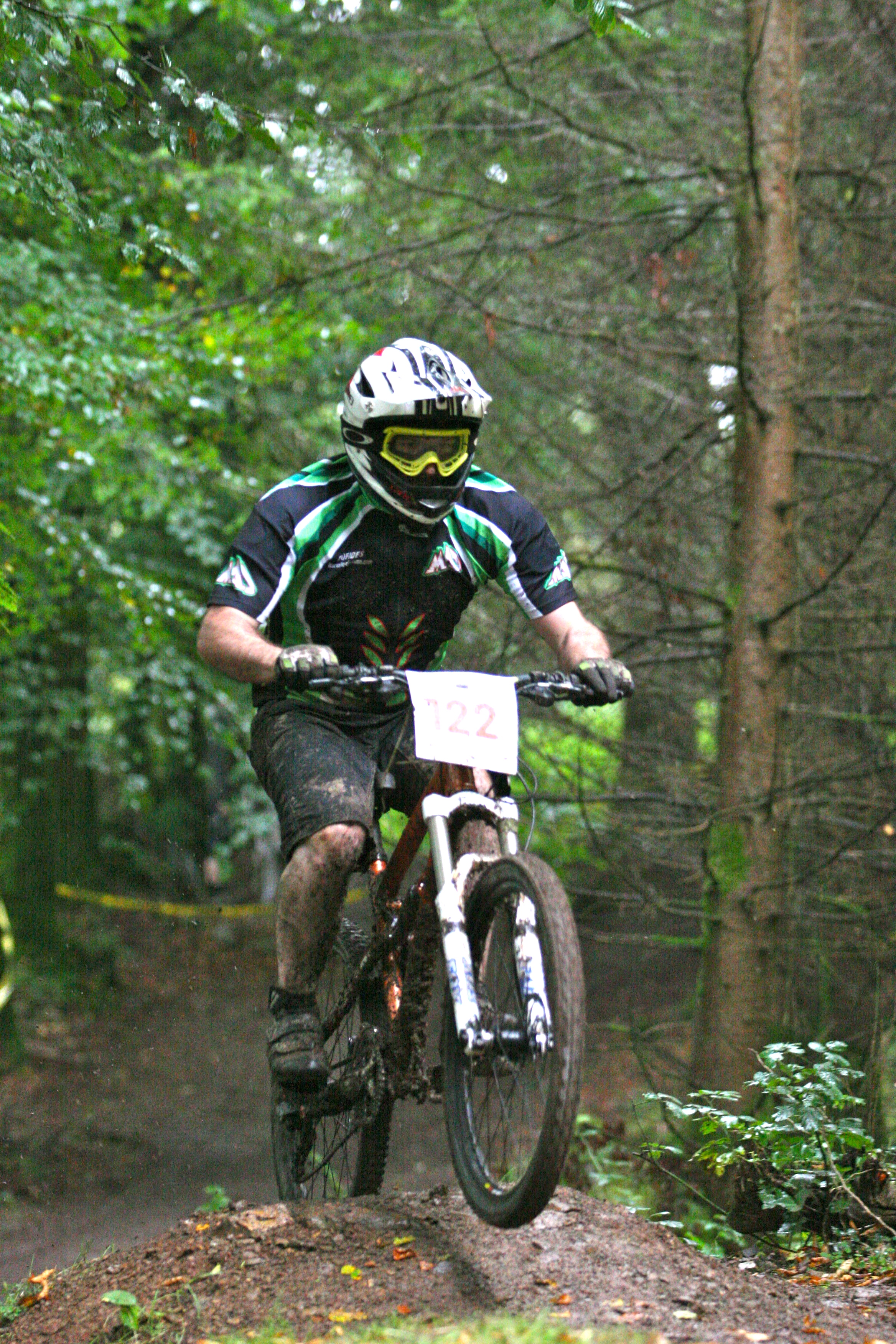By Tom Heavey
Mountain biking has its origins in 1960s Europe, when cyclists used to freewheel down wide gravel roads of mountainous terrain. Early pioneers such as Gary Fisher and Fred Wolfe put oversized tyres on cruiser bikes and began to race the dusty bumpy trails that interweave the hillsides of Marin. Since those days there have been major developments in suspension, hydraulic disk brakes and more advanced frame technology which have allowed the sport to progress at a phenomenal pace.
No longer do mountain bikes ride the wide and relatively mundane gravel roads, today in Ireland there are endless kilometers of singletrack, painstakingly designed to allow the rider to experience as much flow, speed and fun as possible while descending from top to bottom of their chosen mountain, before riding all the way back up to the peak again to take another descent through forests, hillsides and valleys.
Downhill discipline has a number of differences to cross-country. The terrain often has large obstacles such as rocks, boulders, tree roots, large drops and jumps. Built to withstand the pressure of riding such tracks, the bikes are too heavy and too highly geared to cycle without gravity’s assistance.
Once at the top of the mountain or hill, the rider dons the appropriate safety equipment and begins an intense high-speed descent down a purpose built track. The entire race takes about 4 minutes, in which the rider must control a 40lb bike at the fastest speed possible.
Dublin University Cross Country has recently embraced mountain biking. In the last three years, the club has gone from strength to strength, and last year it hosted the hotly contested Irish Downhill Intervarsities in Wexford. Here, club rider Richard Smith took second place. Smith is one of Ireland’s top downhillers, having represented his country on several occasions. DUCC captain Steve Scrivener was crowned 2010 Leinster Champion.
While Ireland does not have many mountains compared to the rest if Europe, they are albeit easily accessible, lending themselves perfectly to mountain biking. There are endless cross-country trails in the Dublin and Wicklow mountains.
Driving one hour from Dublin to Rostrevor will take you to one of the country’s most demanding downhill courses: the National Championship course. The NC is not for the faint hearted and demands the utmost respect. It has endless rocky slabs, tight steep switchbacks and high speed narrow sections with minimal room for error. The Northern Ireland Forestry Service are currently constructing 27km of cross-country trails in Rostrevor as well as two high-level downhill courses, one of which will provide riders with numerous jumps and drops. This means large amounts of airtime for the riders, and another trail which will be more technical and steep, akin to the existing course.
There is a form of biking to suit most people, and trails that will keep all riders content. At the moment DUCC is running beginners’ outings every weekend, where they take novices and introduce them to the appropriate trails. In my opinion, DUCC takes its bikers to the most exhilarating and adrenaline inducing trails the country has to offer.
With the racing season set to start in January, the club will be focusing on the development of new racers and encouragin current riders to continue to improve. DUCC hopes that the pace of involvement in the Mounting Biking will continue to quicken.






